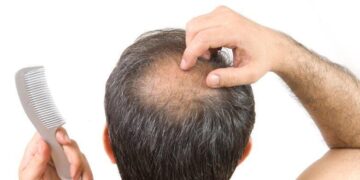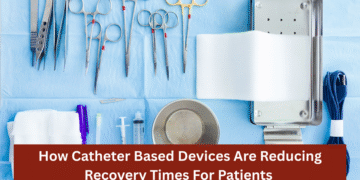Dental emergencies are rarely anticipated. They can occur at home, during work, on vacation, or even during routine activities like eating or playing sports. Whether it’s a knocked-out tooth, severe toothache, broken dental appliance, or sudden swelling, knowing how to respond quickly and calmly is essential. The right actions taken within minutes can make the difference between saving or losing a tooth, preventing infection, or managing pain effectively until professional dental care is available.
And if you’re nervous about going to the dentist, you’re not alone. Dental anxiety is a frequent sensation, whether you are anxious about the sound of the dental equipment or afraid of pain.
Unfortunately, fear of seeing the dentist during an emergency might prevent you from receiving the necessary check-ups and treatment.
The Role Of First Responders And When To Call For Help
While many dental emergencies can be treated with first-aid procedures followed by a trip to the dentist, there are times when expert medical assistance is required immediately. If a person develops uncontrollable bleeding, trouble breathing, significant swelling in the neck or throat, or loses consciousness, he or she must immediately contact emergency assistance.
First responders can provide immediate life-saving care, stabilize the patient, and transport them to the right medical facility. Knowing when to elevate care from dental first aid to full emergency response is critical for handling these circumstances calmly and successfully.
Considering every region holds specific regulations and formalities, the individual in question must be familiar with how dentists usually operate. While an emergency dentist Exeter can tailor their approach and offer cost-effective monthly care plans, a dental clinic in a busy city in the States would only be appointment-only.
All these situations and measures might sound daunting for an individual experiencing jitters; there are ways to stay calm and alleviate dental emergency stress.
Let’s discuss them below.
1. Keep Asking Questions
If you’re feeling nervous, you must ask plenty of questions concerning the treatment you’re receiving. Your fears may be heightened if you don’t fully comprehend what will happen to you once you sit in the dentist’s chair.
An emergency dentist believes that all patients should understand the treatment they are receiving because having a better understanding of the procedure can help soothe their nerves.

2. Take Regular Breaks
We understand that sitting in a dentist’s chair for an extended period can be disconcerting, especially if you are worried about seeing the dentist during an emergency. Many people become uncomfortable sitting for long periods with dental equipment in their mouths.
If you undergo more difficult treatment, you do not need to do it all at once. In essence, many dental clinics urge patients to take frequent breaks, especially if they are feeling anxious or panicked.
3. Relaxation Techniques
People all around the world use relaxation techniques to help them stay peaceful in their daily lives, so it’s no surprise that they can also help you relax during dental treatment.
Some of the most frequent strategies for calming you down before dental emergencies are breathing exercises, a brief meditation, and muscle relaxation techniques. Furthermore, bringing a consolation object with you might provide an incredible sense of security throughout your dentist consultation. This could include a pressure ball, a favorite e-book, or even a cozy blanket.
Additionally, listening to a calming tune or a podcast through headphones can shift your attention away from the dental procedure and create a more enjoyable environment. If you prefer to focus on a single track, consider creating a playlist of your favorite calming tunes ahead of time. In this way, you can immerse yourself in the music while blocking out any stressful sounds from the dental office.
4. Sedation Dentistry
Nitrous oxide may be an option for people who are too anxious to visit the dentist during an emergency. More so, it has been used in dentistry for many years and offers numerous benefits for patients who are unable to remain calm during their treatment.
Remember, nitrous oxide:
- Has little to no side effects.
- Has an analgesic effect.
- Works quickly.
- Is ideal for anxiety sufferers.
- Is suitable for any appointment length due to its adjustable duration.
- Gives you control over the level of sedation.
- Allows you to drive home from your appointment and continue with your day.
5. Practice Calming or Grounding Exercises
Deep breathing is an effective soothing technique. Other calming or grounding mindfulness practices include exercises such as checking in with your five senses.
An example of this type of activity could be counting five things you can see, four things you can feel, three things you can hear, two things you can smell, and one item you can taste.
Try to notice elements you wouldn’t ordinarily notice, whether they’re pleasant or otherwise, and keep a stick of sugar-free gum or a favorite drink on hand for the final one. Experiment with several mindfulness techniques until you find one or two that work for you, and then add them to your unique list of ways to relieve dental anxiety.
Final Thoughts

Dental emergencies are moments where quick thinking meets clear action. Whether you’re dealing with a knocked-out tooth, severe toothache, soft tissue injury, or broken dental device, knowing how to stay calm while acting quickly ensures the best possible outcome. Preparation begins with understanding the right steps to take, assembling an emergency kit, saving key contact information, and educating those around you. Regular dental care and psychological readiness further contribute to an effective response when emergencies occur.
By adopting these habits and strategies, anyone can face dental emergencies with confidence. Instead of panic, there will be focused action. Instead of delays, there will be timely care. And most importantly, by staying calm and acting fast, individuals can protect not only their teeth but also their overall health and well-being.













